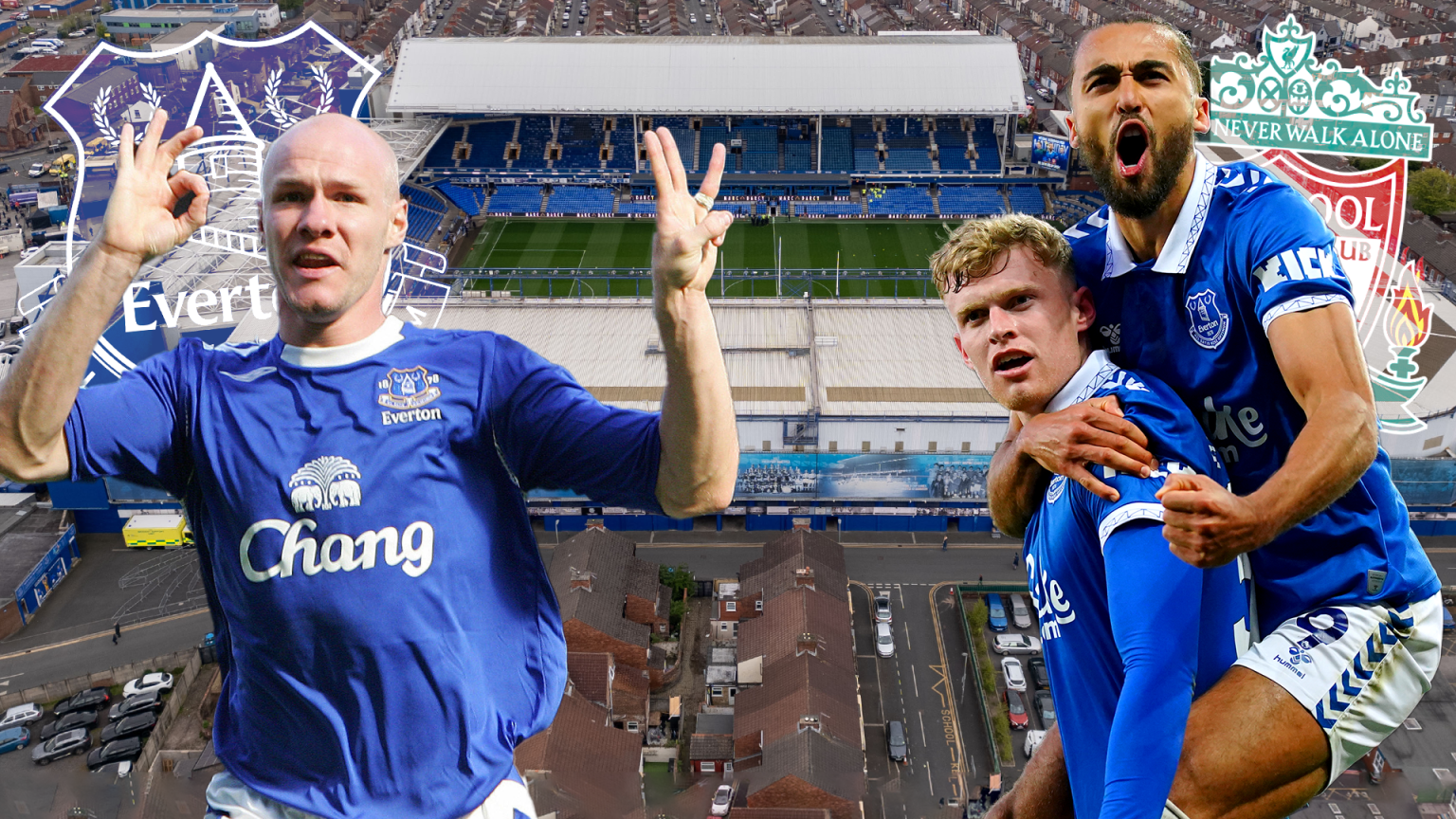The Merseyside derby, a clash between Everton and Liverpool, is set to be played at Goodison Park for the final time after a remarkable 130-year run. This historic fixture, steeped in both camaraderie and fierce rivalry, will transition to Everton’s new stadium at Bramley-Moore Dock next season, assuming their customary escape from relegation. As the two teams prepare for this momentous occasion, the historical record at Goodison Park stands at a perfect deadlock, with both clubs having secured 41 victories each in all competitions. Sean Dyche’s Everton side will be eager to tilt the balance in their favor and secure a symbolic victory against the Premier League giants in their last dance at the grand old ground.
Once known as the “friendly derby”, characterized by the absence of strict segregation between supporters, the Merseyside derby has evolved into a fiercely contested battle, earning the dubious distinction of accumulating the most red cards in Premier League history. With Everton often playing the underdog role, the intensity at Goodison Park becomes particularly palpable, fueled by the stadium’s unique atmosphere. This historic ground, a relic of football’s past, is a cauldron of noise and passion, its tight confines and classic architecture amplifying the roar of the crowd, particularly when Everton face their city rivals.
Goodison Park, designed by renowned football architect Archibald Leitch, exudes a unique charm, its cramped seating and close proximity to surrounding houses contributing to an intense atmosphere that often proves advantageous for the home side. This old-school ground arguably contributes several points to Everton’s tally each season, potentially playing a pivotal role in their recent relegation escapes. A prime example of Goodison’s influence was evident in the previous derby at the venue, where Everton, under the tutelage of Sean Dyche, delivered a resounding 2-0 victory against Jürgen Klopp’s Liverpool, a result that significantly boosted their survival hopes. This victory also held symbolic significance for Evertonians, as it ensured Klopp would finish his Liverpool tenure with fewer league titles than Everton legends Howard Kendall and Harry Catterick.
The history of the Merseyside derby is interwoven with the history of the two clubs themselves. Everton, originally playing at Anfield, departed to establish Goodison Park in 1892 following a boardroom dispute, leaving John Houlding, the club’s majority owner, with a stadium but no team. This led to the formation of Liverpool FC, setting the stage for the enduring rivalry. Since Everton’s 3-0 victory in the inaugural derby in 1894, Goodison Park has witnessed numerous memorable encounters. Among these, the 4-4 draw in a 1991 FA Cup fifth-round replay stands out, a match of remarkable drama and end-to-end action, culminating in the resignation of Liverpool manager Kenny Dalglish two days later, marking the end of Liverpool’s dominant era in English football.
Other notable Goodison Park derbies include Liverpool’s 5-0 triumph in 1982, featuring four goals from Ian Rush, aided by Everton’s disastrous offside trap; and Gary McAllister’s stunning 44-yard free-kick winner in injury time in 2001, securing a 3-2 victory for Liverpool. Evertonians cherish the memory of a 3-0 victory in 2006, with Andy Johnson scoring twice and Liverpool’s Jamie Carragher, an Everton supporter in his youth, enduring a torrid afternoon. A more recent classic was the exhilarating 3-3 draw in 2013, a testament to the open, attacking styles favored by then-managers Roberto Martinez and Brendan Rodgers.
The Merseyside derby is the longest-running, continuously-held major derby in British football, with both clubs being permanent fixtures in the top flight since 1962. As Goodison Park prepares to host its final derby, the stage is set for a new chapter in this storied rivalry. The new stadium at Bramley-Moore Dock promises a modern setting for future encounters. But on this final occasion, Goodison Park, with its distinctive character and passionate atmosphere, will undoubtedly provide a fitting send-off, promising one last memorable clash between these two iconic clubs.


